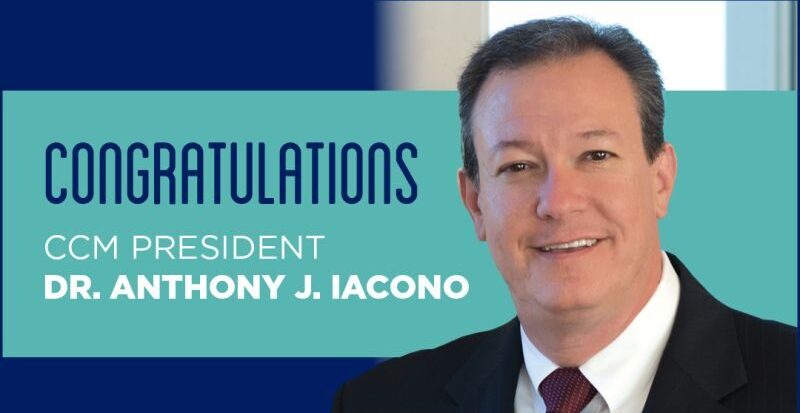Initiative Launched After Administrator Survives Heart Attack – Posted 3/4/16

More than 100 employees at County College of Morris (CCM) have received American Heart Association CPR and Automated External Defibrillator (AED) training to increase the number of potential lifesavers on campus and in the community.
The free training program for employees, which began last year and remains ongoing, was initiated by the college after Joan Cunningham, then dean of the Division of Health and Natural Sciences, suffered a heart attack during a meeting. It was the quick action of Dr. Dwight Smith, vice president of Academic Affairs, and two members of the Department of Public Safety – David Ackerman and Charles Munk – that not only saved Cunningham but also ensured that she suffered no brain damage as a result of the heart attack.
As soon as Cunningham collapsed in her chair, Smith, realizing she was under the care of a cardiologist, got her down on the floor and started administering CPR, something he had learned more than 20 years earlier. Ackerman and Munk then arrived several minutes later and used an AED on Cunningham.
“Many things were done right that day,” said Elizabeth Hoban, nurse and coordinator of Health Services at CCM, who is conducting the CPR and AED training for employees. “The fact that Dwight began administering compressions right away kept oxygen going to Joan’s brain.”
“That’s the value of training. You just respond because you don’t have to stop and think,” said Smith. “It was instantaneous.”
While the compressions kept oxygen going to the brain, the AED shock resumed the rhythm of Cunningham’s heart.
“Every time I think about it, I realize how fortunate I am that they were there,” said Cunningham. “I got a second chance because they were there. How many people get that?” Cunningham has since retired from CCM after 39 years of service at the college.
CCM has 18 state-of-the art AEDs located throughout the campus. As a result of the training, it also has many people on hand who are prepared to make use of them should the need arise again.
“It’s great others have received training and we have the AEDs,” noted Smith. “Not only is it helpful for the CCM community, but we have people who are trained to help should a situation arise when they are out in public or even at home.”



